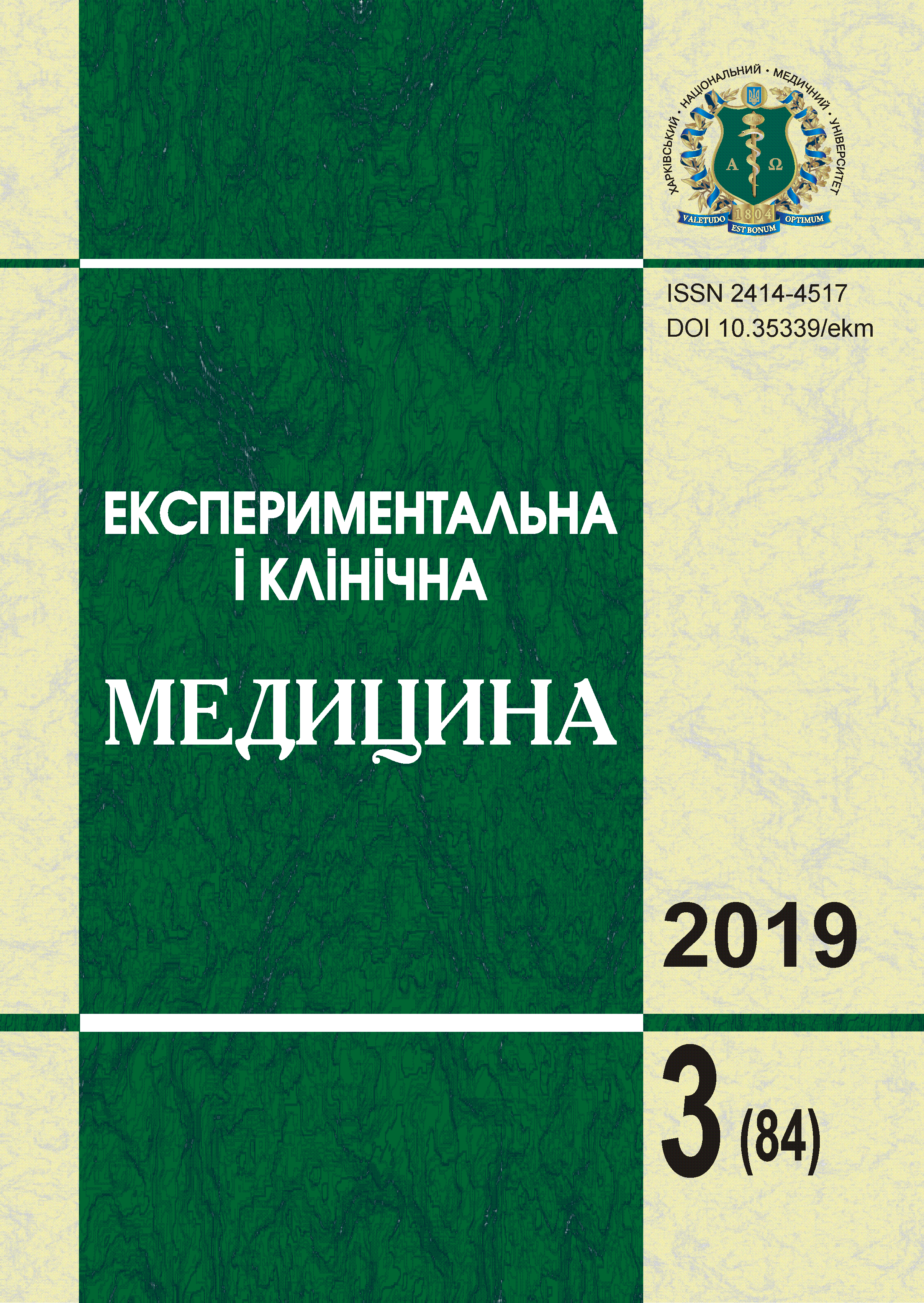Abstract
The study involved 72 patients with moderate to severe mixed dementia complicated by hallucinatory-paranoid disorders (main group) and 61 patients with moderate and severe mixed dementia not complicated by psychotic disorders (control group). It has been proven that patients with mixed dementia complicated by psychotic disorders were characterized by more severe cognitive impairment. In patients with mixed dementia of moderate severity thought thinking disorders of psychotic genesis predominate, and in patients with mixed dementia of severe severity complicated by psychosis, a high frequency of cognitive impairment of praxis, gnosis, attention, speech, reading and orientation has been detectedReferences
Mishchenko T.S. (2017). Kognitivnyye narusheniya v praktike semeynogo vracha (aktual’nost’ problemy, faktory riska, patogenez, vozmozhnosti lecheniya i profilaktiki) [Cognitive impairment in the practice of a family doctor (urgency of the problem, risk factors, pathogenesis, treatment and prevention options)]. Semeynaya meditsina – Family medicine, № 1, pp. 21–25 [in Russian].
Gimoyan L.G., Silvanyan G.G. (2013). Narusheniye kognitivnykh funktsiy: aktual’nost’ problemy, faktory riska, vozmozhnosti profilaktiki i lecheniya [Cognitive impairment: the urgency of the problem, risk factors, the possibility of prevention and treatment]. Arkhiv vnutrenney meditsiny – Archive of Internal Medicine, № 2 (10), pp. 35–40 [in Russian].
Zilkens R.R., Bruce D.G., Duke J. et al. (2014). Severe psychiatric disorders in midlife and risk of dementia in late-life (age 65–84 years): a population based case-control study. Curr. Alzheimer Res., vol. 11, pp. 681–693.
Maruta N.A., Potapov A.A., Mudrenko I.G., Sotnikov D.D. (2018). Kliniko-psikhopatologicheskiye osobennosti bol’nykh s suitsidal’nym povedeniyem pri smeshannoy forme dementsii [Clinical and psychopathological characteristics of patients with suicidal behavior in a mixed form of dementia]. Psikhiatriya, psikhoterapiya i klinicheskaya psikhologiya. Ukraina – Belarus: OOO «Izdatel’skiy dom «Professional’nyye izdaniya», vol. 8, № 1, pp. 46–59 [in Russian].
The epidemiology and impact of dementia: current state and future trends. Geneva: World Health Organization; 2015 (document WHO/MSD/MER/15.3; http://www.who.int/mental_health/neurology/dementia/dementia_thematicbrief_epidemiology.pdf).
Mezhdunarodnaya organizatsiya po bolezni Al’tsgeymera i Vsemirnaya organizatsiya zdravookhraneniya. «Dementsiya: prioritet obshchestvennogo zdravookhraneniya». Zheneva: Vsemirnaya organizatsiya zdravookhraneniya [International Alzheimer’s Organization and the World Health Organization. “Dementia: a public health priority.” Geneva: World Health Organization]; 2012. Retrieved from http://apps.who.int/iris/bitstream/10665/75263/14/9789244564455_ru.pdf?ua=1.
Maruta N.O. (2017). Ovladeniye obnovlennoy sistemoy diagnosticheskikh podkhodov i kriteriyev DSM-5: vozmozhnosti dlya spetsialistov, rabotayushchikh v sfere psikhicheskogo zdorov’ya [Mastering the updated system of diagnostic approaches and criteria DSM-5: opportunities for professionals working in the field of mental health]. Psikhiatriya, psikhoterapiya i kdlinicheskaya psikhologgiya – Psychiatry, psychotherapy and clinical psychology, vol. 8, № 1, pp. 92–103 [in Russian].
Chukhlovina M.L. (2010). Dementsiya: diagnostika i lecheniye [Dementia: diagnosis and treatment]. Sankt-Peterburg: Piter. 266 p. [in Russian].
Azermai M. (2015). Dealing with behavioral and psychological symptoms of dementia: a general overview. Psychol. Res. Behav. Manag., vol. 8, pp. 181–185.
Folstein M.F., Folstein S.E., McHugh P.R. (1975). “Mini-mental state”. A practical method for grading the cognitive state of patients for the clinician. J. Psychiatr. Res., vol. 12 (3), pp. 189–198.
Nasreddine Z.S., Phillips N.A., Bedirian V. et al. (2005). The Montreal Cognitive Assessment MoCA: a brief screening tool for mild cognitive impairment. J. Am. Geriatr. Soc., vol. 53 (4), pp. 695–699.

